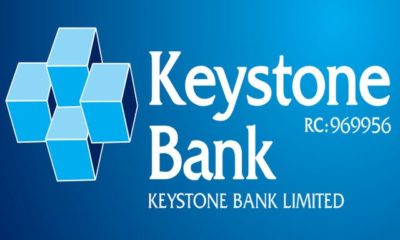Finance
CBN Debits Banks N216 Billion for Not Meeting CRR Target

Loans
NNPC Has Started Settling $6bn Debt to Foreign Suppliers— Wale Edun
Banking Sector
Union Bank Sets New Industry Standard with Comprehensive Maternity Leave and Onsite Crèche Facility
Banking Sector
UBA Grows Interest Income Jump by 169% to N1.799 Trillion
-

 Education4 weeks ago
Education4 weeks agoFederal Government Approves 133% Allowance Boost for NYSC Members, Now ₦77,000
-

 News3 weeks ago
News3 weeks agoBbnaija’s Wanni Wins Innoson Car Challenge, Secures First Vehicle with Twin Sister
-

 Business3 weeks ago
Business3 weeks agoNigerian Businesses Slash Dollar Exposure as Naira Depreciation Deepens
-

 Technology3 weeks ago
Technology3 weeks agoOpenAI’s Valuation Soars to $157 Billion After $6.6 Billion Funding Round
-

 Investment4 weeks ago
Investment4 weeks agoVice President Shettima Calls on Global Investors to Trust Nigeria’s Economic Reforms at UNGA
-

 Investment3 weeks ago
Investment3 weeks agoFG Secures $200m Afreximbank Investment For Creative Industry
-

 Telecommunications4 weeks ago
Telecommunications4 weeks agoTelecom Firms Face N56 Billion Monthly Diesel Bill Amid Power Woes
-

 Banking Sector3 weeks ago
Banking Sector3 weeks agoUnity Bank, Anwbn Empower Women Entrepreneurs With Ai, Digital Marketing Skills































